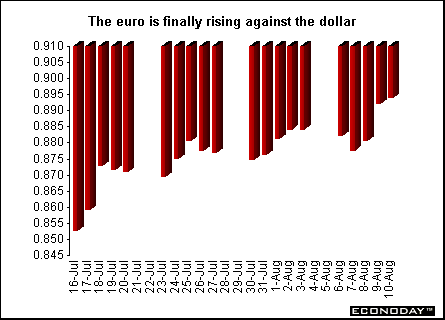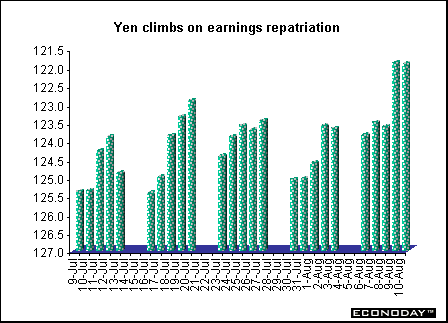
Currencies
The dollar fell for a fifth week against the euro, its longest streak of declines this year, on concern the U.S. economy won't rebound soon. People that may have been holding onto dollars the last two months in hopes it would get even stronger have been getting out because of disappointment that the U.S. was supposed to come out of the slowdown and it's not. The biggest blow for the dollar this week came from the Fed's Beige Book that said the economy was stagnant in June and July.

Besides disappointment over the U.S. economy's performance, the euro was helped by hints that the ECB might be considering cutting interest rates. The latest monthly report from the ECB released said "sizeable" risks remained to growth in the eurozone. The ECB also said inflationary pressures in the eurozone may be easing. This could give the bank scope for a rate cut which many people have been arguing is needed to encourage growth for quite some time now.
The yen rose despite the government's most recent economic evaluation that said growth prospects are worsening. Government officials suggested again that they don't want to see the currency rise. According to the report, the Japanese economy is deteriorating further and factory production and exports have declined substantially. On the week, the yen rose against the dollar, snapping a two week slide, amid speculation Japanese banks will ship home overseas revenue ahead of the September 30 end of their fiscal half year, to offset losses in domestic stocks and bonds.

The dollar's slide was prompted by the Fed's pessimistic Beige Book, which gave a worse than expected picture for the U.S. economy. The report saw economic growth stagnating, and seems to have led analysts to reassess the value of the dollar. Many people have argued the dollar is overvalued, and on Thursday General Motors urged the Fed to weaken the currency as its strength could hurt U.S. manufacturers. The question is whether the dollar's move is part of a continuing trend.


Introduction • Global Stock Market Indexes • Recap of Global Markets • Currencies • Indicator Scoreboard

The Bottom Line • Looking Ahead
|